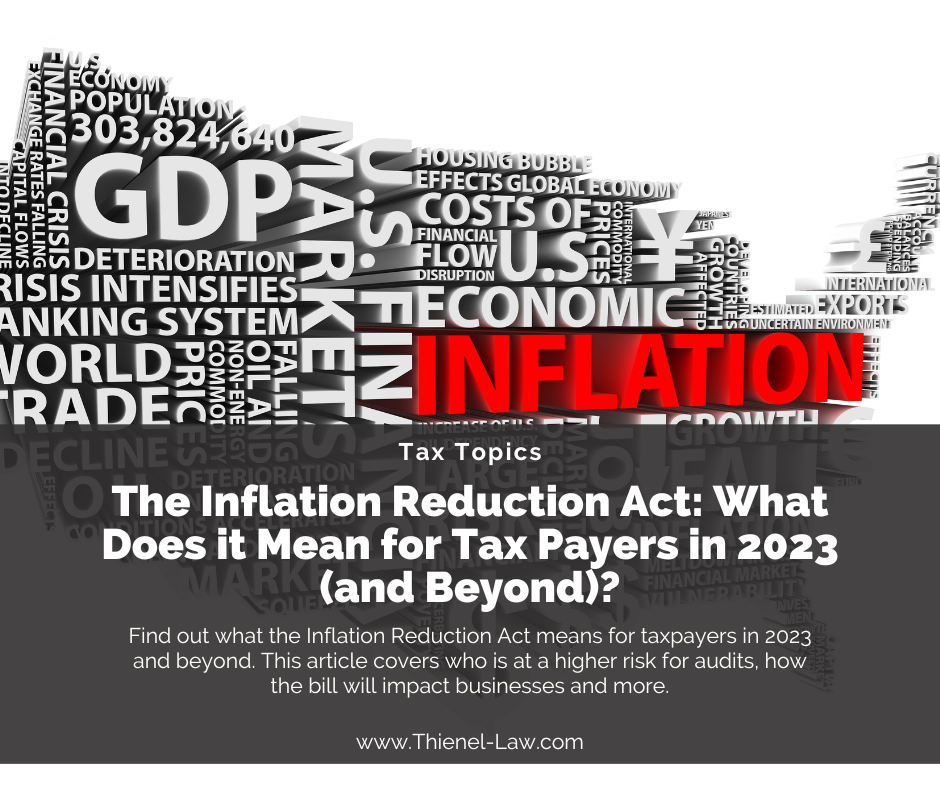The IRS Extended the Tax Deadline for 2021 - What it Means for You
Last year at the onset of the COVID-19 outbreak, the IRS extended the federal income tax filing deadline from April 15, 2020, to July 15, 2020, also waiving interest and late filing fees.
On March 17, 2021, the Treasury Department and IRS announced they would again provide special tax filing and payment relief to individuals and businesses in response to the ongoing COVID-19 pandemic.
However, Columbia, Maryland, tax attorneys recommend clients take time to understand the details of the IRS extended tax filing deadline for 2021 and what it means to them.
The 2021 Tax Season and COVID-19
COVID-19 continues to cripple many American households financially.
The United States Congress has responded to the ongoing crisis by authorizing relief to American taxpayers through stimulus checks, increased unemployment benefits, and small business loans.
Recently, IRS Commissioner Chuck Rittig directly recognized the hardships people are suffering due to the pandemic and the need for the IRS to navigate the changes in circumstances as a result.
"This continues to be a tough time for many people, and the IRS wants to continue to do everything possible to help taxpayers navigate the unusual circumstances related to the pandemic...” - Chuck Rittig
In keeping with the commissioner’s comments, the IRS has issued an automatic postponement of the federal income tax filing deadline for the 2020 tax year. Rather than meeting an April 15, 2021, filing deadline, individuals now have until May 17, 2021, to file their taxes and make tax payments.
What is Covered by the IRS COVID-19 Tax Extension?
Under the IRS 2021 tax season extension, individual taxpayers have more time to file and pay their income taxes.
Individuals filing a tax return for 2020 taxes have until May 17, 2021, to file, and they also have until that date to make any tax payments usually due on April 15, 2021.
The IRS will also waive any interest, penalties, or additions to tax for individual returns filed by MaAy 17, 2021. This means that taxpayers can take advantage of the extra time to file and use that time to gather their money to make tax payments if needed.
File By May 17, 2021:
No Interest
No Penalties
Taxpayers unable to file their returns by May 17 may request an additional extension by filing IRS Form 4868. Payments, however, will still be due by the May 17 extension due date to avoid taxes and penalties.
Also, taxpayers should know IRS relief does not apply to estimated taxes due by April 15, 2021. Estimated taxes should be made quarterly to the IRS by those who earn income not subject to withholding. Income not subject to withholding generally includes rental, interest, dividend, and self-employment income.
Questions about how to navigate estimated taxes, tax payments, and the filing extension due dates, may necessitate consulting an experienced tax lawyer.
The IRS June 15, 2021 Disaster Relief Extension
Following FEMA’s disaster declarations for Texas, Oklahoma, and Louisiana that were ravaged by February storms, the IRS declared special disaster tax provisions to aid taxpayers of those states.
Individuals, businesses, and tax-exempt organizations in Texas, Oklahoma, and Louisiana have been offered an extension to June 15, 2020, for filing their returns, tax payments, and estimated tax payments.
IRS Disaster Relief Extension:
June 15, 2021
Texas, Oklahoma, Louisiana
Filing, Payments, Estimated Payments
In some circumstances, the IRS will reduce or eliminate penalties and interest for missed payments due on or after February 8, 2021, and before February 23, 2021.
Taxpayers in a federally declared disaster area may also be eligible for faster tax refunds by filing an amended return for their previous year’s taxes and claiming losses related to the disaster on the amended tax return.
Does the IRS Filing Extension Affect State Income Tax Filing Due Dates?
The IRS extension applies only to the federal tax filing due date. Very few states have extended state income tax filing due dates.
Virginia, Maryland, and Delaware are among a few select states with extended state tax filing deadlines beyond April 15, 2021. Further, none of those states share exact filing dates with one another or the IRS.
Taxpayers are urged to verify their individual state’s filing requirements with a state-certified CPA or tax attorney.
Ask A Maryland Tax Attorney: Can the IRS 2021 Tax Extension Help Me?
The average American taxpayer can almost always benefit from additional time to file their federal income taxes, even in a year without hardships.
To support those struggling in the wake of COVID-19, the IRS has extended the individual federal income 2020 tax filing and payment deadline from April 15, 2021, to May 17, 2021, without penalties or interest.
The extension gives taxpayers extra time to organize their tax documents and gather the money for tax payments. Taxpayers expecting a tax return are better off filing their returns sooner than later and electronically for faster processing.
There are many changes to filing deadlines other than the May 17, 2021 extension. Between individual and business taxes, estimated payments, taxes owed, disaster relief extensions, and state taxes, navigating the 2021 tax season may be challenging.
Seeking the counsel of a qualified tax attorney in your state is a wise decision. In Maryland, residents are encouraged to contact an experienced Columbia, Maryland tax attorney for advice.
When you contact our office, we will connect you with a seasoned tax lawyer who can guide you through recent changes and exceptions to the IRS federal income tax 2021 filing dates and exceptions.
Together, we will review your situation and determine your filing needs. We regularly advise clients regarding federal and state filing and payment guidelines.
For assistance with your tax-related needs, contact our law office today.




